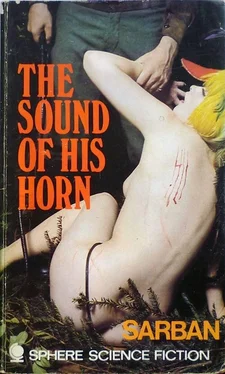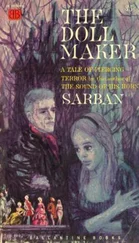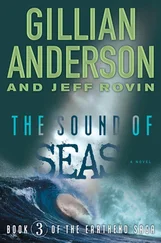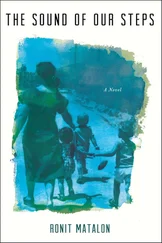Сарбан - The Sound of His Horn
Здесь есть возможность читать онлайн «Сарбан - The Sound of His Horn» весь текст электронной книги совершенно бесплатно (целиком полную версию без сокращений). В некоторых случаях можно слушать аудио, скачать через торрент в формате fb2 и присутствует краткое содержание. Жанр: Альтернативная история, на английском языке. Описание произведения, (предисловие) а так же отзывы посетителей доступны на портале библиотеки ЛибКат.
- Название:The Sound of His Horn
- Автор:
- Жанр:
- Год:неизвестен
- ISBN:нет данных
- Рейтинг книги:4 / 5. Голосов: 1
-
Избранное:Добавить в избранное
- Отзывы:
-
Ваша оценка:
- 80
- 1
- 2
- 3
- 4
- 5
The Sound of His Horn: краткое содержание, описание и аннотация
Предлагаем к чтению аннотацию, описание, краткое содержание или предисловие (зависит от того, что написал сам автор книги «The Sound of His Horn»). Если вы не нашли необходимую информацию о книге — напишите в комментариях, мы постараемся отыскать её.
The Sound of His Horn — читать онлайн бесплатно полную книгу (весь текст) целиком
Ниже представлен текст книги, разбитый по страницам. Система сохранения места последней прочитанной страницы, позволяет с удобством читать онлайн бесплатно книгу «The Sound of His Horn», без необходимости каждый раз заново искать на чём Вы остановились. Поставьте закладку, и сможете в любой момент перейти на страницу, на которой закончили чтение.
Интервал:
Закладка:
Sarban. The Sound of His Horn
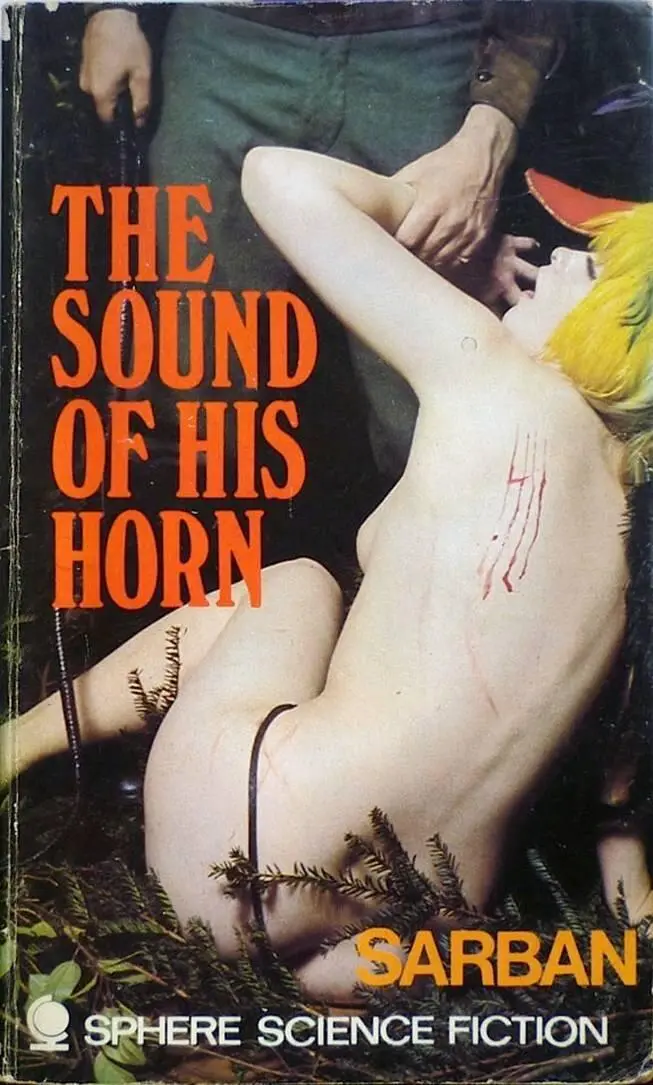
Foreword. by Kingsley Amis
We can be pretty certain that our literary tastes are arrived at not so much by conscious choice as in response to the less-than-conscious demands of our temperament. Thus the reader of westerns isn't in the first place concerned with a particular stretch of American history, nor does he simply want a fast narrative with plenty of action. What he likes, I imagine, is hearing about a special kind of heroic society and a special, simplified code of morality and honor. The idea of gun law satisfies his nature in a way that tough ethics or private-eye ethics, for instance, can't. The same sort of process, with its different sets of results, is at work in the mind of the science-fiction addict and the fantasy addict.
The distinction between science fiction and fantasy has been thrashed out over and over again without anything very positive emerging. It will not quite do to say that science fiction tries to make its marvels plausible while fantasy doesn't bother with any of that To take only one example: the ghost stories of M. R. James work hard and successfully to convince the reader that there are circumstances in which a ghost can be expected to show up, to offer a chain of «logic» that will explain an apparition just as satisfactorily as time travel, etc, is explained by the «logic» of the science-fiction writer. And similar objections can be made against all other attempts to distinguish between the two modes–all that I have seen, at any rate. On the other hand, most of us usually know which of the two we are reading in any given case. The definitions may not fit properly but there are always plenty of clues.
Science fiction is likely to be interested in the future, whether near or remote. The bias of fantasy is correspondingly backward-looking, to the mythologies of demons and werewolves and mermaids. When it does portray the future, it does so typically in terms borrowed from the past, dressing everybody up in ceremonial robes and locating them in some kind of feudal or medieval world. Again, the horrors of science fiction, when not interplanetary, are always urban; its paradises, as in the work of Clifford D. Simak and others, are rural. But it is right there in the country that horrible things happen to characters in fantasy stories, to the terrified old couple cut off from humanity in Shirley Jackson's The Summer People, to the village at the mercy of an omnipotent three-year-old sadist in Jerome Bixby's It's a Good Life.
To take it a stage further back, one could argue that fantasy appeals to deeper and darker instincts than does science fiction. The fears that find expression in it are not rational fears of an overgrown technology or a gradually encroaching totalitarianism, but ancient irrational fears of that world which science has blotted out of conscious thought, the world of unseen forces beyond the extrication of science, to be seen most clearly in terms of the past, obviously, or in remote areas where the rule of science does not run. And so science fiction, the active, progressive agent, is hopeful about man's ability to improve himself via reason; fantasy, reactionary and pessimistic views man as the hopelessly corrupt plaything of blind, random influences. It is in this sort of way that we can explain the air of arbitrariness and cynicism, the slices of cruelty, disgust and despair, that are characteristic of so much fantasy writing, and here lies its appeal to our temperament. I hope I haven't sounded puritanical about this, by the way; I myself prefer science fiction to fantasy on the whole, and of course I think this is right; but the view of life I have ascribed to fantasy is one which has its attraction for most of us at certain times. Occasionally, too, a piece of fantasy comes along written with a skill and energy that make us revise our preconceptions.
The Sound of His Horn is such a piece. It certainly is fantasy in all sorts of ways, starting with the obvious point that the parallel universe in which the main story takes place is not to be approached by any kind of scientific technique, nor is its existence to be explained along any possible scientific lines. Alan Querdilion, retelling his experiences, feels he ought to be able to explain them away as a madman's dream, for this would be the best proof of sanity–not by my own sanity alone, but the sanity of all this order that we believe in, the proper sequence of time, the laws of space and matter, the truth of all our physics; because you see, if I wasn't mad there must be a madness in the scheme of things too wide and wild for any man's courage to face.
To question the validity of «all this order that we believe in» is the typical starting-point of fantasy, and «a madness in the scheme of things» is its typical subject matter. When Querdilion awakes to find himself in a future world dominated by the Nazis after their victory in World War II (now renamed the War of German Rights), he is acting out a favorite maneuver of fantasy and indeed a nightmare that reaches a long way back into the past: the dreadful awakening into an environment that is human but changed. The character's response, and the reader's invited response, are shock and horror, expressed most powerfully in Kafka's The Metamorphosis, which inverts the usual procedure by changing the character (into a huge roach) and leaving the environment unchanged.
Sarban's achievement is not on the scale, but the shock and horror are genuine enough. They are given an added edge by the relative plausibility of the society in which Querdilion finds himself marooned. If the Nazis had in fact won their war, we could have expected to see–those of us who were still around–a systematic development of the master-race concept into a kind of feudal structure, with a small oligarchy of immensely powerful and capricious overlords, a middle stratum of fiendishly conscientious Party administrators, and a huge slave-proletariat absolutely subject to the whim of their masters, even to lengths of providing them, as here, with human game for the chase. No less plausible is the rural environment, which connects up with those distorted Nazi dreams of an older Germany inhabited by hard-riding, hard-drinking barons (Hermann Goering, cleverly invoked in the novel, is the example here) and bands of clean-limbed young Nordic foresters (compare the countrified elements in the activities and dress of Nazi youth organizations).
I said earlier that a rural setting was a settled ingredient of fantasy, but inspection reveals that Sarban uses it, and much else, in a way more characteristic of science fiction. The long prelude, again, with its cheerful fireside atmosphere, is aimed at setting up a reassuring basis of familiarity while preparing for a violently contrasting plunge into the unfamiliar. The average writer of fantasy does not go about things in this way. Even if he is interested in plausibility, he seldom goes beyond inducing us to suspend our disbelief for the duration of the story; Sarban remains plausible on reflection as well. Further, to present a whole society and way of life, not merely a situation, in relatively convincing terms is even less typical of fantasy. And just as The Sound of His Horn invites comparison with science fiction in its concern to present a coherent picture that borders on our own experience (plus a few bio-technological details about the breeding of slaves), so it stands as a challenge to science fiction in its originality.
The nightmare futures envisioned by writers like Frederik Pohl or Ray Bradbury are often brilliantly detailed and imaginative, but as noted they are always urban, metropolitan, technological, consumptional, managerial.
Читать дальшеИнтервал:
Закладка:
Похожие книги на «The Sound of His Horn»
Представляем Вашему вниманию похожие книги на «The Sound of His Horn» списком для выбора. Мы отобрали схожую по названию и смыслу литературу в надежде предоставить читателям больше вариантов отыскать новые, интересные, ещё непрочитанные произведения.
Обсуждение, отзывы о книге «The Sound of His Horn» и просто собственные мнения читателей. Оставьте ваши комментарии, напишите, что Вы думаете о произведении, его смысле или главных героях. Укажите что конкретно понравилось, а что нет, и почему Вы так считаете.
